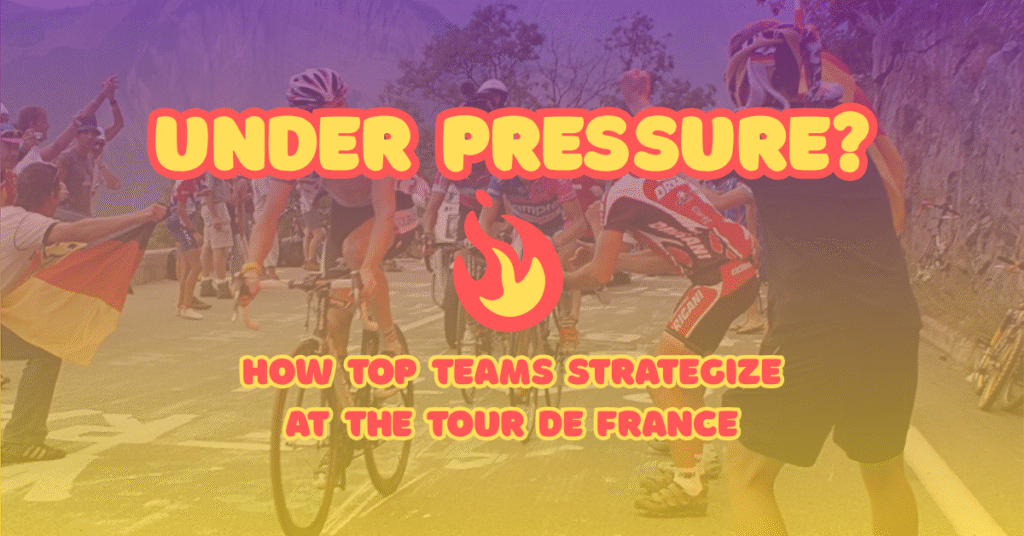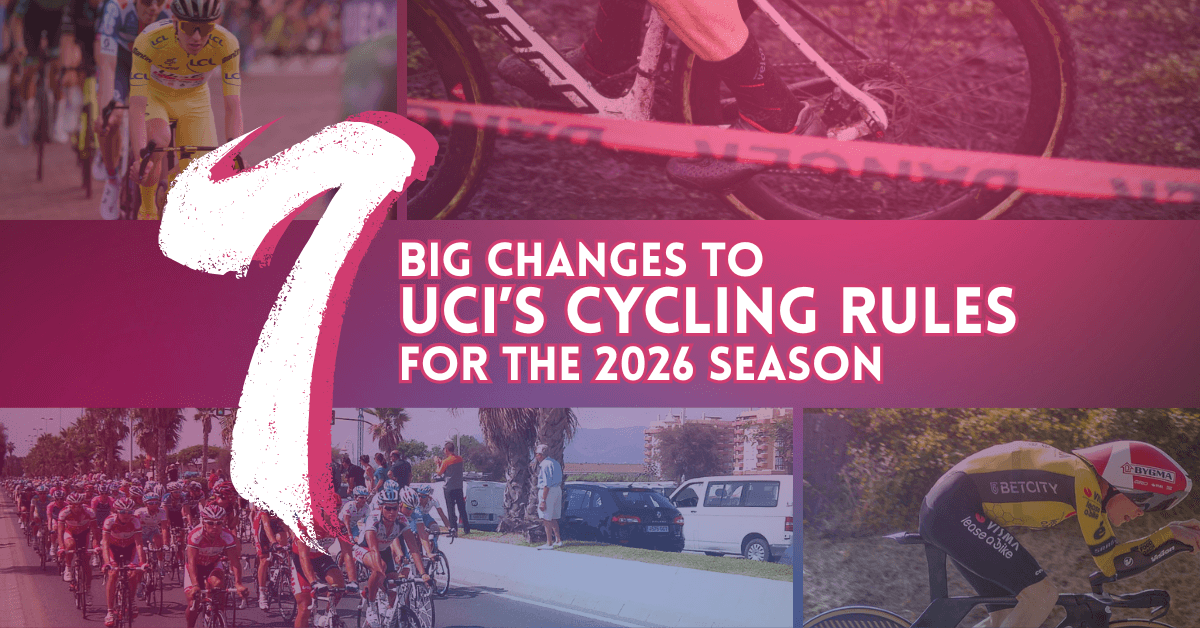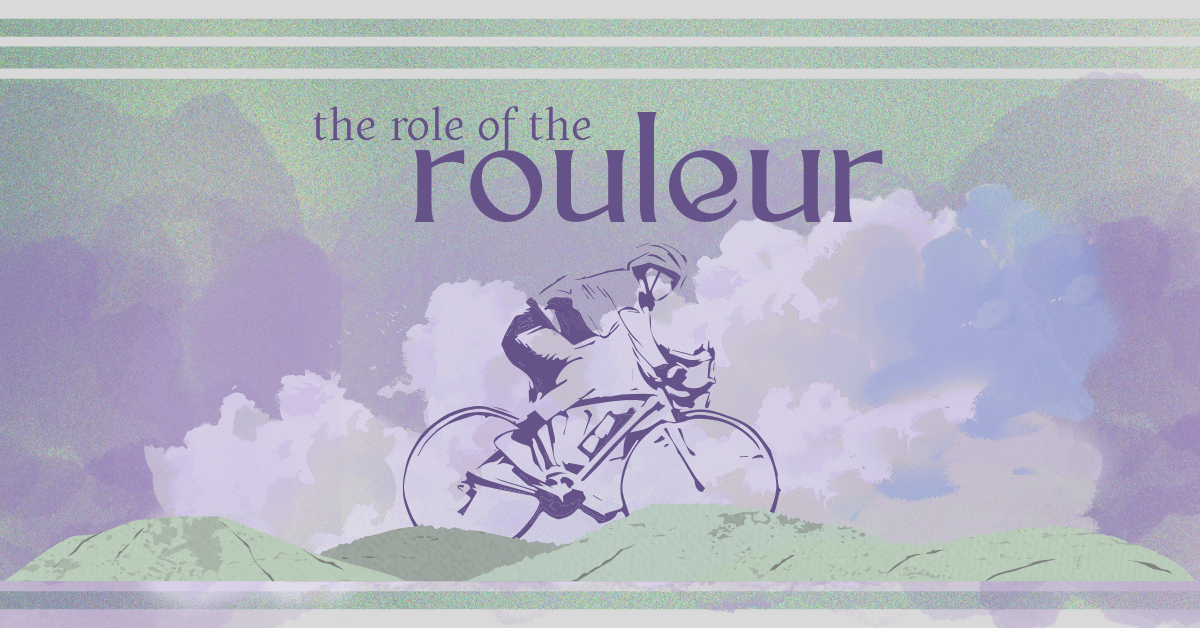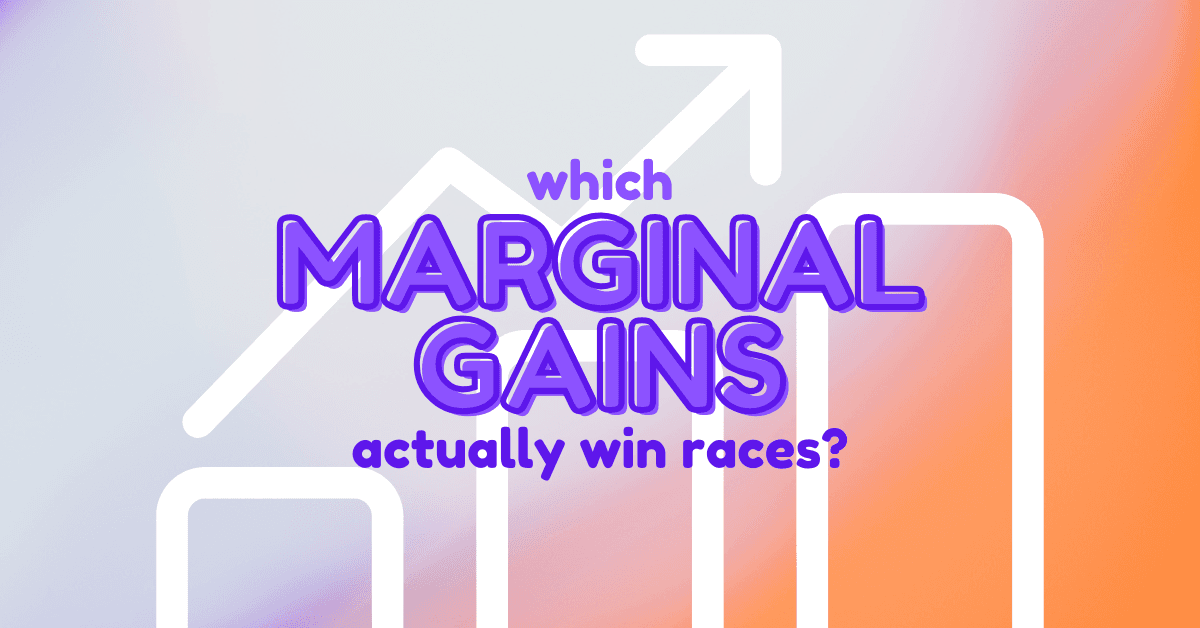For each team invited to participate in the Tour de France, the stakes are extraordinarily high. In fact, the survival and future prosperity of a team may hang in the balance when it comes to securing wins — and more important, visibility.
But why? The source of the pressure to perform can vary based on each team’s financial situation, roster, or goals. Each July, each of these factors are scrutinized more closely than any other time of year. And it’s not just by fans, but by an entire ecosystem of inner and outer stakeholders.
Want to learn more about what the Tour de France really means to the top cycling teams? Let’s take a closer look and consider some situations taking place over the 2025 edition of the race.

Sponsorship is all about keeping up appearances.
The financial and functional core of a professional cycling team is its sponsorship.
Unlike in some other sports, teams can’t be funded by ticket revenue or broadcast rights. Instead, companies and other entities (more on that later) are willing to sponsor specific teams in exchange for one thing: exposure and visibility.
What’s the catch? Well, when sponsors end up investing in equipment and salaries for a professional cycling team, they expect a significant return in the form of their brand visibility. A positive association from a cycling team might lead to increased sales or name recognition. And the Tour de France is by far the sport’s biggest platform for teams to catch the attention of fans, with billions of viewers by the roadside and around the world watching by TV each year.
What does this pressure to deliver results for a sponsor look like during the race? For sponsors, the goal isn’t just to win, but to be seen winning. Or, at least, seen trying! Putting the sponsor’s name logo in front and center as often as possible is a core goal. A stage win, a day in a leader’s jersey, or a prominent breakaway can all generate media time or brand mentions. Having charismatic riders helps, too. Outside of racing, they may also participate in other activities to promote the sponsor. They may attend sponsor events, meet with VIPs, participate in photo shoots, or feature on social media, all to promote a sponsor brand. Anything that gets a team rider positive attention or screen time is a win from the sponsor perspective!
What happens when teams don’t measure up?
For teams whose riders are consistently out of contention or invisible on screen, sponsors may be disappointed. The optics of a sponsor pulling out due to underperformance is a constant financial threat for cycling teams. In many cases, it is capable of collapsing an entire team structure, leaving riders and staff out of work. On the WorldTour, this is currently happening to Arkéa-B&B Hotels, as both of their title sponsors announced that they will be leaving after the current season. What will happen to the team in 2026 and beyond remains to be seen, as they will either need to find a new sponsor… or fold under the financial pressure.
“Sportswashing” brings cycling’s sponsorship under fire.
Most casual fans of cycling are familiar with the team of multiple Tour de France winner Tadej Pogačar, Team UAE Emirates. The superstar recently extended his contract to ride with the squad until 2030. But did you know that the team itself is sponsored by the United Arab Emirates nation? In fact, it’s one of four cycling teams sponsored by directly by countries, including Bahrain Victorious and Jayco AlUla. Isreal PremierTech also sports the name of a nation due to its strong ties to Isreali backers.
This phenomenon is considered to be “sportswashing” — by sponsoring these teams, the nations involved hope to better their reputations and create good associations with their name worldwide. Unfortunately, sportswashing is often used to cover up a range of issues in the sponsor country, such as human rights violations, scandals, or other forms of corruption. And while nations aren’t the only group that engage in sportswashing (oil companies are another subset of participants ‘greening’ up their image), they’re one of the most insiduous — and potentially the easiest to bar from sponsorship in the future.
During the Tour de France, teams may face more controversy surrounding their sponsorships, especially those that are linked to sportswashing. The pressure to deliver results that make a sponsor look good are more of a balancing act for a poorly-perceived sponsor, and may make the situation even more contentious for a team. If future regulations within the sport make sportswashing more difficult, teams may no longer face such pressure to make ethical decisions in sponsorship.
Embed from Getty ImagesThe relegation fight is an existential threat for smaller teams.
Beyond their immediate financial concerns, teams operate under the constant jurisdiction of the UCI’s WorldTour system.
The tiered structure governs everything about professional cycling, with top-tier WorldTour licenses granting automatic entry to the most prestigious races. That includes the Grand Tours. But licenses are not permanent: they are awarded on three-year cycles based on accumulated UCI points.
What happens to teams that drop out of the WorldTour? For most, it means a drastic reduction in race invitations, a significant cut in broadcast revenue, and a diminished ability to attract top riders. Demotion relegates a team to a second-tier existence. Riders who know their contracts and careers are tied to the team’s WorldTour status may feel the pressure to avoid this most strongly, especially in their early or later career during a the struggle for initial or continued relevance. The fear of relegation becomes a team-level motivator, not just for leadership, but for the riders as well.
How important are UCI points at the Tour?
Of course, the battle for UCI points is a season-long grind. However, the Tour de France offers a disproportionately high number of points for stage wins, general classification (GC) placements, and secondary classifications.
Just how many points are at stake? The winner of a Tour de France stage takes home 210 UCI points for their team. That’s more than the 180 points awarded for a Giro or Vuelta stage win, with wins in other stage races throughout the year giving an even lower sum. For the overall GC winner of the Tour de France, 1,300 UCI points are at stake — but points are given to runners-up, too. That’s why many teams are optimistic for a top ten or, if it’s not realistic, to finish as high as possible with a GC contender. Check out the full points tables here at The Inner Ring.
For teams hovering near the “relegation zone,” or standings where WorldTour licenses may not be granted next year, the Tour can be very important. Established teams that are in danger of relegation, such as Cofidis or Picnic-PostNL, will be feeling the most pressure to make a splash with a stage win or jersey day at the Tour in 2025. With Picnic performing better than expected over the first weeks of the race, the others need to get a move on to get points of their own — or at least limit the losses.
Embed from Getty ImagesBuilding a future roster at the Tour de France.
Rider recruitment factors into the calculus at the Tour. After all, when a team performs well, it’s an advertisement for its equipment capabilities, infrastructure, and winning culture. Unfortunately, the opposite is also true, and failure to do much in July looks pretty bad to prospective riders. Top-tier cyclists on the transfer market will naturally gravitate towards teams that demonstrate strength, stability, and a proven track record of supporting their leaders. A strong, consistent showcase at Le Tour becomes a must for their recruitment.
While the “transfer season” is distinct, the Tour can be a critical period for contract negotiations, with riders and their agents gauging a team’s future prospects and their own market value within it. This is true both for stars already riding on the WorldTour as well as those looking to make a step up, as well as U19 or U23 talent without a contract. As such, success at the Tour de France may make it easier to attract established stars and, crucially, to nurture and retain any promising young talent who see a clear pathway to success with the team. Of course, it all comes down to money — but even teams with the ability to pay won’t attract young riders if those riders will never have a chance to do well.
And too many problems may put a pin in recruitment for now.
What about a very poor Tour outing? If the year is rife with crashes and underperformance, a team can seem less appealing to its prospects. In this sense, a team may feel pressure not only to deliver results and wins, but also not to “screw up,” lest they poison their ability to recruit for the coming year… or longer.
During the 2025 season, we’ve heard rumblings of a prospective transfer for Remco Evenepoel to team Red Bull Bora Hansgrohe. How will team performances influence the likelihood of this rumor coming true? Red Bull is showing a strong face so far, especially in supporting their own young star Florian Lipowitz. However, Evenepoel himself has run into trouble, abandoning the race on Saturday’s Stage 14 after a lackluster performance in the mountain time trial the day before.
While Evenepoel likely remains a top target on the transfer market, both Red Bull, another potential suitor INEOS, and Evenepoel’s current team Soudal will be keeping his prospects in mind throughout the rest of the Tour’s stages.
Embed from Getty ImagesTour de France fame can become a team’s brand and legacy.
Everything we’ve talked about here is very immediate: financial stress, staying in the UCI’s good books, and grabbing up rider contracts to keep the team running. But what about the future? After all, most teams want to build a lasting brand and a reputation for winning. In the era of superteams, the chances for smaller teams to snag a stage victory or a top-ten in GC have narrowed. Sponsors may change, but the core of a team can go on for years and years — is there something to remember from 2025? The intangible asset of legacy becomes a commodity which is more difficult than ever to obtain.
Idealistically, it’s true: everyone wants a nice legacy. But what does that look like? A team that always comes through at the Tour, whether through GC wins, stage hunting, or strong collective effort, cultivates a certain image of positive “team culture.” This often resonates with fans and can lead to increased merchandise sales, social media engagement, and a loyal following. It’s hard to argue that any team has done this better than Visma Lease-a-Bike, with a fanbase that’s fiercely dedicated to the team and its riders. Recently, the team has also been promotion the “Yellow B” and “Beehive” names for themselves — clear efforts to distinguish the team entity itself from title sponsors. It’s unique in the world of cycling, but we’ll have to wait and see how this translates to long-term fandom and even team longevity.
Legacy is intersectional, too. A powerful narrative can be leveraged in sponsor pitches or brand promotions. A team known for Tour de France success over many years is more desirable for riders who want to be part of a successful program. Many teams would like to get their name into cycling history for years to come simply because it makes everything easier: riders, fans, and money alike.
Closing thoughts.
After reading all this, it may still sound like fun to be part of a WorldTour team at the Tour de France, but you’re likely not jealous of the pressure each feels to perform at the top level. I know I’m not! For most teams, success is not merely desirable but essential for building their own futures.
For the remainder of the Tour de France, with every team under the global spotlight, we’ll see them confront these pressures head-on. And one thing’s for sure: with Stage 15 in the books, some are running out of chances.
The Tour de France is a trial by fire. It’s time to separate those who can withstand the heat. I can’t wait!
Embed from Getty ImagesWhich team have you noticed is having a great Tour de France this year? Let us know in the comments or on social media! ★










Leave a Reply